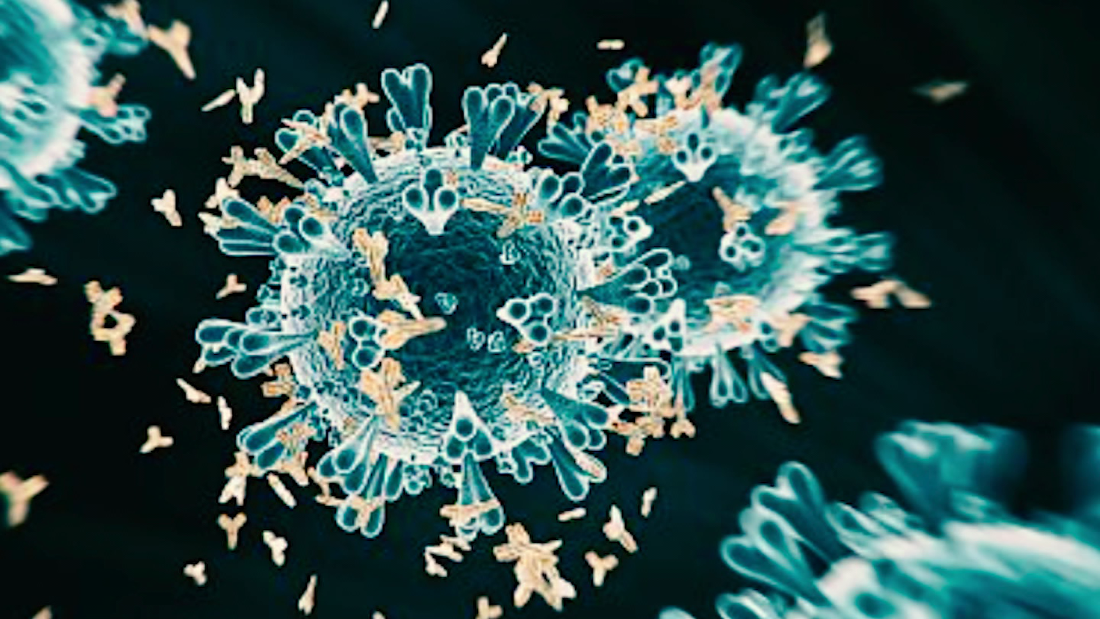
That's because the only source of new coronavirus variants is the body of an infected person.
"Unvaccinated people are potential variant factories," Dr. William Schaffner, a professor in the Division of Infectious Diseases at Vanderbilt University Medical Center, told CNN Friday.
"The more unvaccinated people there are, the more opportunities for the virus to multiply," Schaffner, a professor in the Division of Infectious Diseases at Vanderbilt University Medical Center, said.
"When it does, it mutates, and it could throw off a variant mutation that is even more serious down the road."
All viruses mutate, and while the coronavirus is not particularly mutation-prone, it does change and evolve.
Most of the changes mean nothing to the virus, and some can weaken it. But sometimes, a virus develops a random mutation that gives it an advantage -- better transmissibility, for instance, or more efficient replication, or an ability to infect a great diversity of hosts.
Viruses with an advantage will outcompete other viruses, and will eventually make up the majority of virus particles infecting someone. If that infected person passes the virus to someone else, they'll be passing along the mutant version.
If a mutant version is successful enough, it becomes a variant.
But it has to replicate to do that. An unvaccinated person provides that opportunity.
"As mutations come up in viruses, the ones that persist are the ones that make it easier for the virus to spread in the population," Andrew Pekosz, a microbiologist and immunologist at the Johns Hopkins Bloomberg School of Public Health, told CNN.
"Every time the viruses changes, that gives the virus a different platform to add more mutations. Now we have viruses that spread more efficiently."
Viruses that don't spread cannot mutate.
Variants have arisen all over the world -- the B.1.1.7 or Alpha variant was first seen in England. The B.1.351 or Beta variant was first spotted in South Africa. The Delta variant, also called B.1.617.2, was seen first in India. And the US has thrown up several of its own variants, including the B.1.427 or Epsilon lineage first seen in California and the B.1.526 or Eta variant first seen in New York.
Already, one new variant has swept much of the world. Last summer, a version of the virus carrying a mutation called D614G went from Europe to the US and then the rest of the world. The change made the virus more successful—it replicated better -- so that version took over from the original strain that emerged from China. It appeared before people starting naming the variants, but it became the default version of the virus.
Most of the newer variants added changes to D614G. The Alpha variant, or B.1.1.7, became the dominant variant in the US by late spring thanks to its extra transmissibility. Now the Delta variant is even more transmissible, and it's set to become the dominant variant in many countries, including the US.
The current vaccines protect well against all the variants so far, but that could change at any moment. That's why doctors and public health officials want more people to get vaccinated.
"The more we allow the virus to spread, the more opportunity the virus has to change," the World Health Organization advised last month.
Vaccines are not widely available in many countries. But in the US, there is plenty of supply, with slowing demand. Just 18 states have fully vaccinated more than half their residents, according to data from the US Centers for Disease Control and Prevention.
"Currently, approximately 1,000 counties in the United States have vaccination coverage of less than 30%. These communities, primarily in the Southeast and Midwest, are our most vulnerable. In some of these areas, we are already seeing increasing rates of disease," CDC Director Dr. Rochelle Walensky told a White House briefing Thursday.
"Every time we see the virus circulating in the population, particularly a population that has pockets of immune people, vaccinated people, and pockets of unvaccinated people, you have a situation where the virus can probe," Pekosz said.
If a virus tries to infect someone with immunity, it may fail, or it may succeed and cause a mild or asymptomatic infection. In that case, it will replicate in response to the pressure from a primed immune system.
Like a bank robber whose picture is on wanted posters everywhere, the virus that succeeds will be the virus that makes a random change that makes it look less visible to the immune system.
Those populations of unvaccinated people give the virus the change not only to spread, but to change.
"All it takes is one mutation in one person," said Dr. Philip Landrigan, a pediatrician and immunologist at Boston College.
"Factory" - Google News
July 03, 2021 at 06:23PM
https://ift.tt/3yl4u8S
Unvaccinated people are "variant factories," infectious diseases expert says - CNN
"Factory" - Google News
https://ift.tt/2TEEPHn
Shoes Man Tutorial
Pos News Update
Meme Update
Korean Entertainment News
Japan News Update
Bagikan Berita Ini














0 Response to "Unvaccinated people are "variant factories," infectious diseases expert says - CNN"
Post a Comment